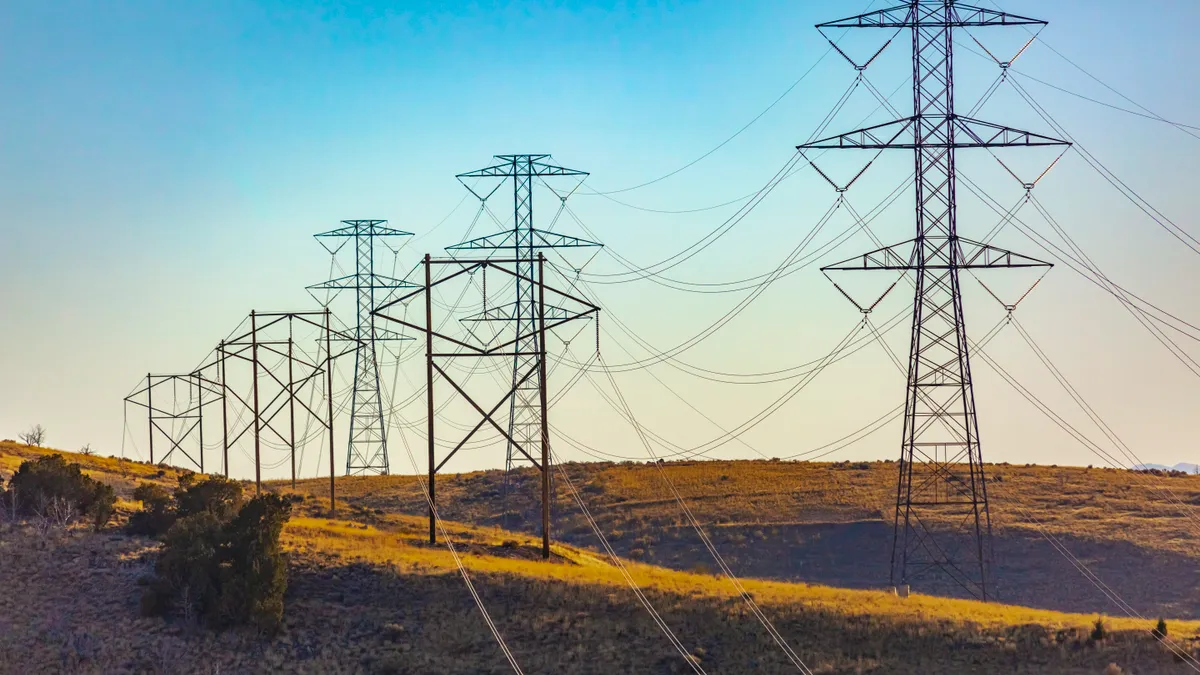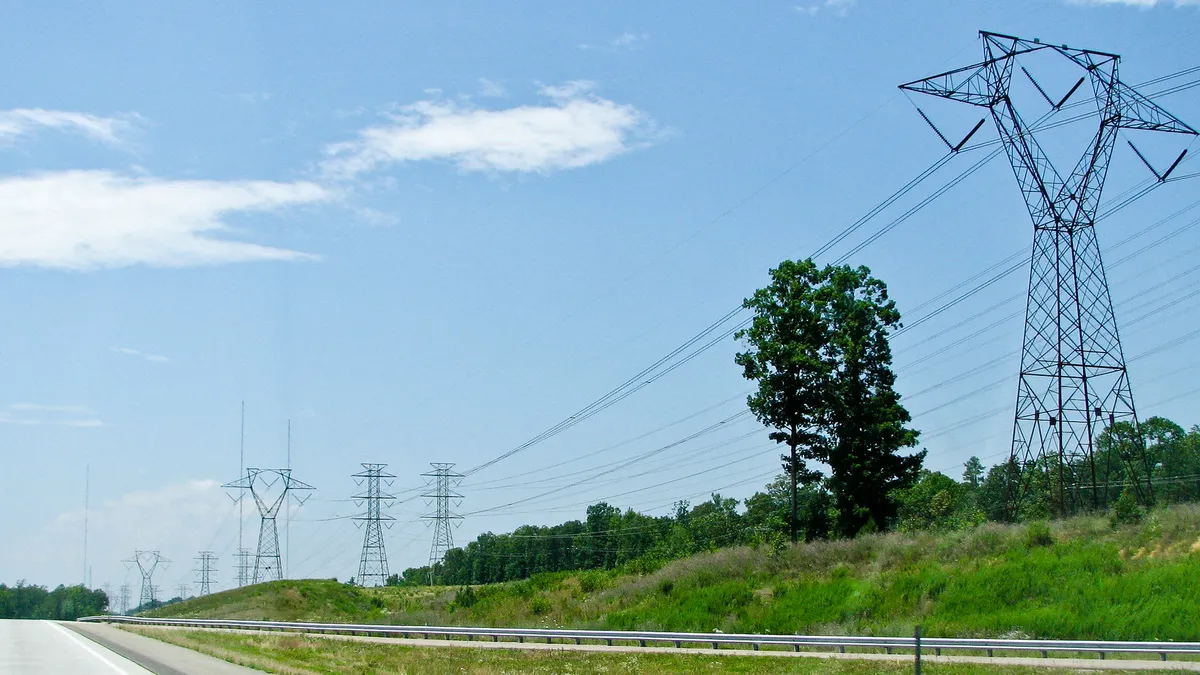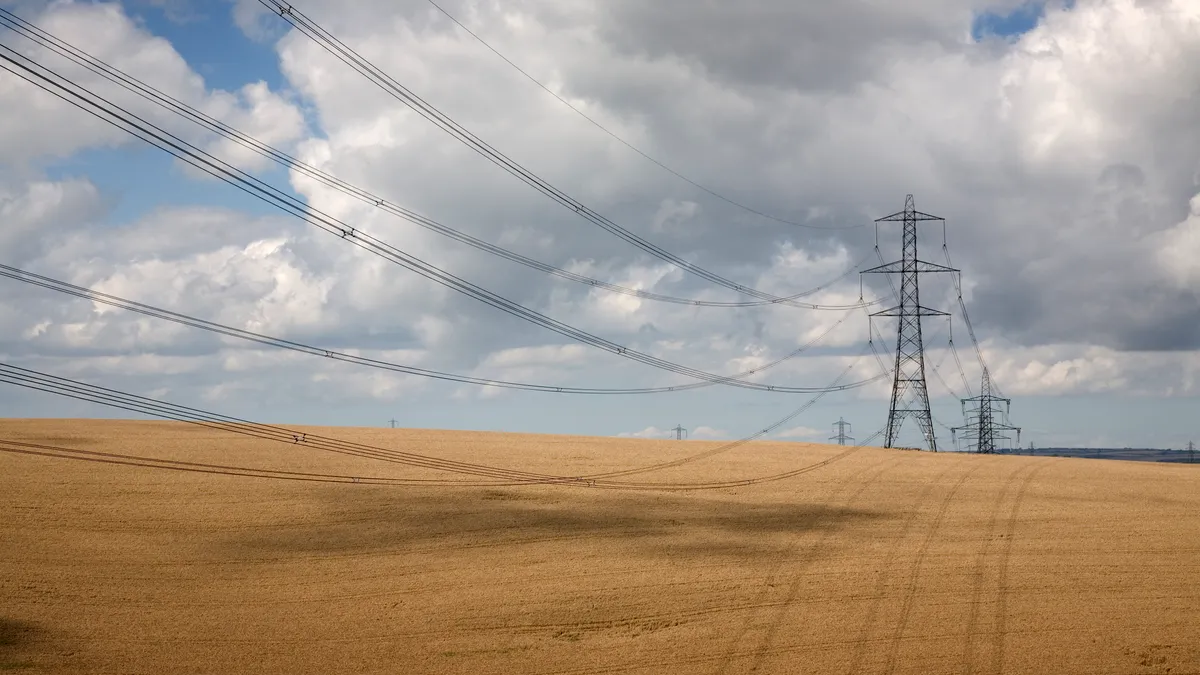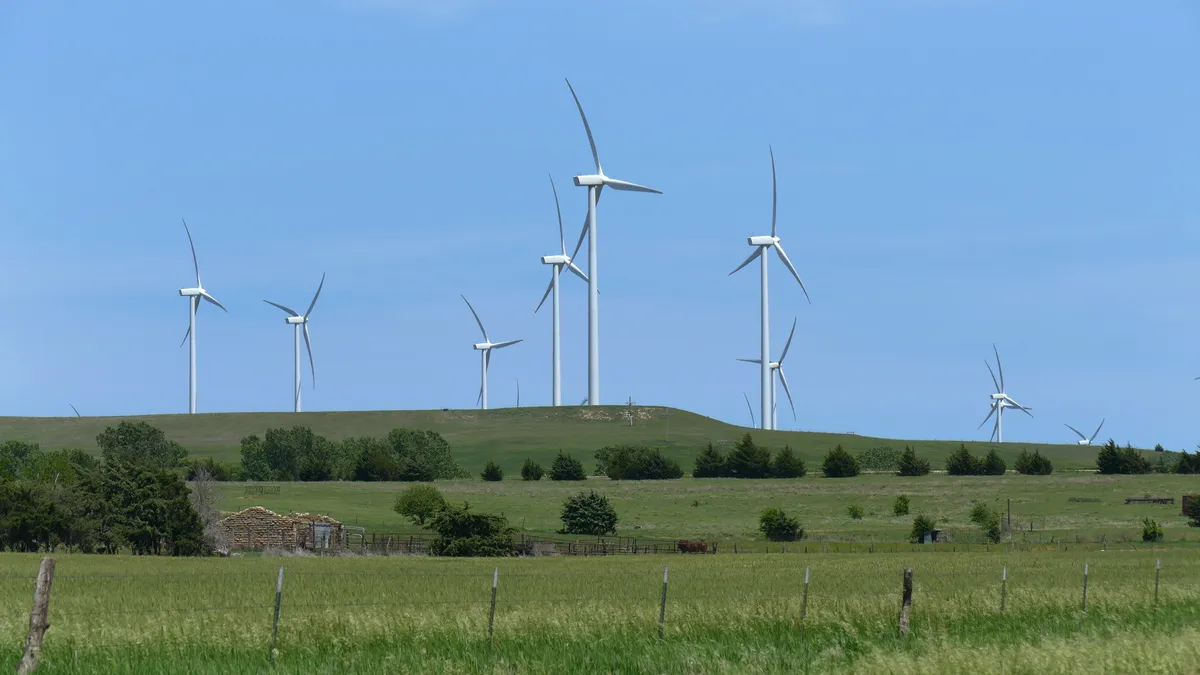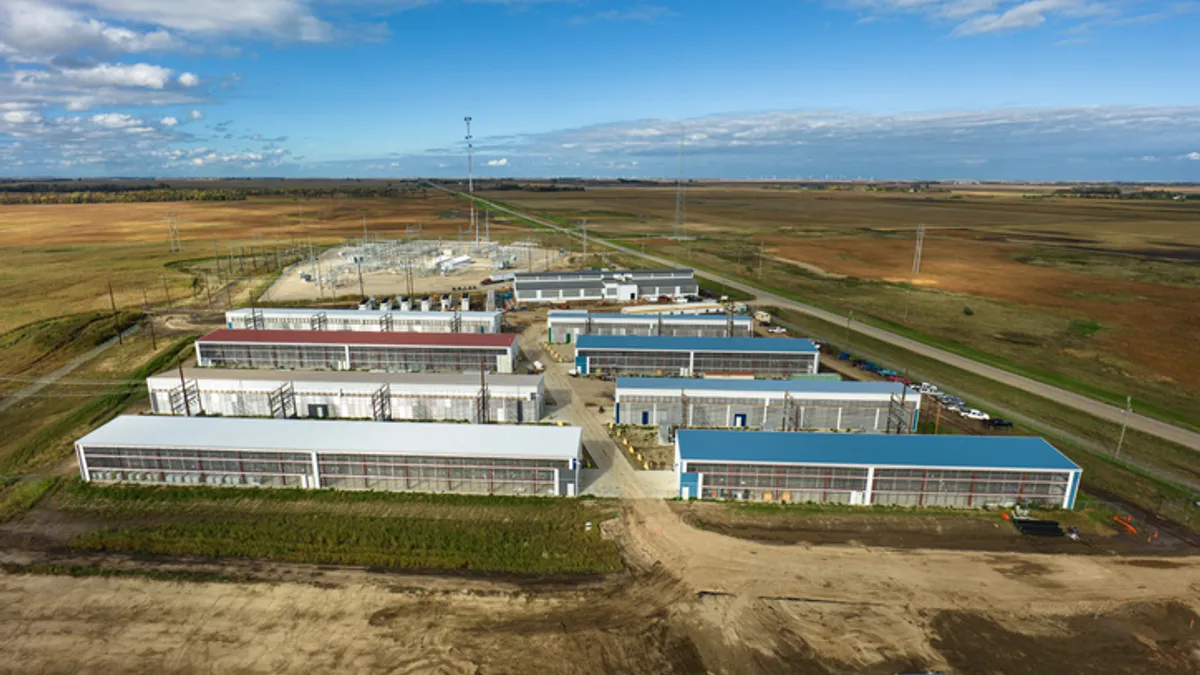Leaders of the Senate Energy and Natural Resources Committee on Wednesday continued their push to advance permitting reform legislation for energy and other large infrastructure projects, following initial changes included in the debt ceiling bill that became law last month.
A key element not included in the debt deal is judicial reform, such as time limits on lawsuits over energy infrastructure, including transmission lines, Sen. Joe Manchin, D-W.Va. and committee chairman, said during a hearing.
“Given how behind we are building the energy infrastructure this country needs for our security, Congress should direct the courts to expedite proceedings for these projects,” he said.
Congress should also set a shorter deadline — currently six years in many cases — for challenging a permit after it is issued and agencies should respond more quickly after a court orders changes to a permit, Manchin said.
Major transmission lines are needed to bolster reliability and deliver power, but construction has been limited in recent years, according to Manchin.
“The process for siting, paying for and planning large interstate and interregional transmission is different from other types of infrastructure and requires unique fixes,” he said.
Barrasso ties transmission reform to power plant retirements
Sen. John Barrasso, R-Wyo. and the top Republican on the committee, said he was willing to consider legislation to encourage interstate transmission development as long as it follows two principles.
First, reforms must address the biggest threat to electric reliability — which isn’t a lack of transmission lines, according to Barrasso, but instead “the premature retirement of coal, natural gas and nuclear power plants.”
Second, the reforms can’t lead to some states paying for the energy policies of other states, Barrasso said.
“Congress should not try to force electric customers in rural, inland states, such as Wyoming and West Virginia, to subsidize ill-conceived policies of coastal states, such as California and New Jersey,” he said.
Manchin is trying to reach bipartisan agreement on permitting reform and the hearing built on one held in May on the issue.
Several permitting reform bills have been introduced in the Senate.
They include Manchin’s Building American Energy Security Act, which is similar to a bill he introduced last year, and the SPUR Act and RESTART Act offered separately by Barrasso and Sen. Shelley Moore Capito, R-W.Va., ranking member of the Senate Environment and Public Works Committee. Sen. Tom Carper, D-Del., chairman of the environment committee, offered an energy permitting reform proposal that includes a two-year limit on environmental reviews for some climate-focused projects.
The passage of limited permitting reforms in the debt ceiling bill may make it harder to reach a compromise on a second round of reforms and transmission legislation, according to some industry observers.
However, the need for reform is urgent, according to Jason Stanek, former chairman of the Maryland Public Service Commission and co-chair of a transmission task force made up of state utility commissioners and members of the Federal Energy Regulatory Commission.
“The glacial pace of our approvals process is threatening the nation's ability to deliver reliable and affordable energy supplies,” Stanek told the committee. “We all want the same goal of streamlined, efficient permitting processes of energy infrastructure.”
Any permitting reform legislation should respect the role of the states in reviewing projects while speeding up the process by setting time limits on environmental reviews and legal challenges, Stanek said.
AEP, Schumer call for full benefits analysis
As FERC considers transmission planning reforms, Congress should encourage the agency to require long-term planning time horizons, standardized and expansive planning scenarios, and the consideration of all reliability, security and economic benefits power line projects can bring, Antonio Smyth, American Electric Power executive vice president for grid solutions and government affairs, told the committee.
FERC’s transmission planning reform proposal fails to define the benefits that need to be considered, possibly making it “too easy for transmission providers to skew a cost-benefit analysis,” Senate Majority Leader Chuck Schumer, D-N.Y., said in a July 20 letter to FERC.
The agency could define the benefits based on cost allocation principles contained in Manchin’s pending permitting reform bill, according to Schumer.
Smythe and Stanek supported requiring regions to be able to transfer minimum amounts of electricity between themselves.
Minimum transfer requirements can improve reliability between regions, but the thresholds should be flexible to make sure their costs and benefits match up appropriately, Smythe said.
Sen. John Hickenlooper, D-Colo., said he is working on a bill with Rep. Scott Peters, D-Calif., to require those thresholds. The U.S. has built 7 GW of interregional transmission in the last decade, he said.
Lack of agency staffing seen as key permitting challenge
A major bottleneck for developing energy projects on federal land is a lack of staffing by the Bureau of Land Management and other agencies reviewing permit applications, according to Kelly Speakes-Backman Invenergy’s executive vice president of public affairs.
In Nevada, there are 96 pending solar applications on federal land, but they appear to face a growing bottleneck partly caused by understaffing at BLM offices, said Sen. Catherine Cortez Masto, D-Nev.
Uncertainty about leasing federal land and water is also a challenge for energy companies, according to Speakes-Backman.
Offshore lease sales need to occur on a regular schedule so project sponsors and their financial backers can plan years in advance, Speakes-Backman said. Also, supply chain companies need a pipeline of projects to invest in factories and labor forces, she said.
The Inflation Reduction Act tied renewable energy development of federal land and waters to offshore oil and gas leasing, Manchin said during the hearing.
The IRA bars the Department of Interior from issuing right-of-ways for wind or solar energy development on federal land unless an oil and gas onshore lease sale has been held in the previous 120 days and at least 2 million acres have been offered for lease in the previous year.
Offshore wind leases cannot be issued unless at least 60 million acres have been offered in the previous year.
House Democrats, who are in the minority, on Wednesday introduced a bill to repeal those provisions.



